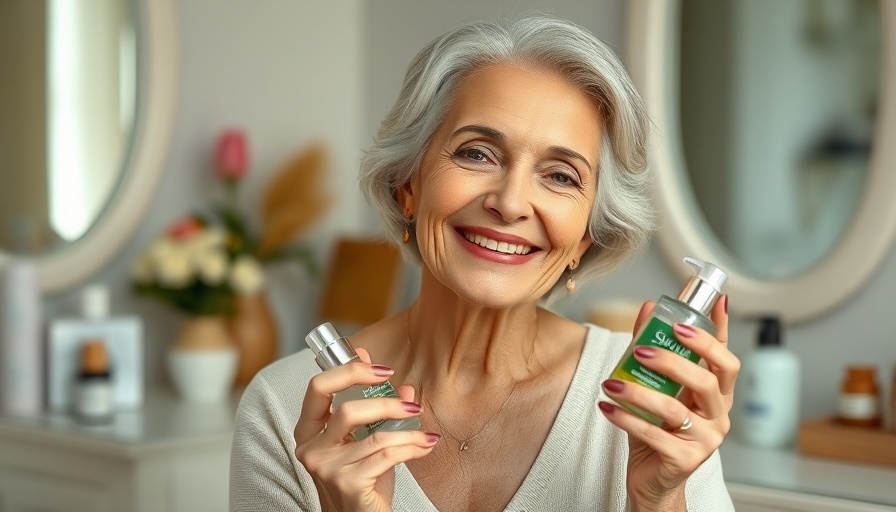
Unlocking the Secret to Youth: Can Hormones Turn Back Time?
As we age, the natural signs of aging manifest through wrinkles and the graying of hair. However, recent research suggests that hormones could play a pivotal role in delaying these effects, offering new hope for those seeking to combat the aging process. The study published by the Endocrine Society explores the potential of various hormones to serve as therapeutic agents against skin aging, providing a glimpse into the future of anti-aging treatments.
Understanding the Hormonal Connection to Skin Aging
Lead author Markus Böhm, M.D., indicates that hormones such as insulin-like growth factor 1, growth hormone, estradiol, and melatonin significantly impact the skin's aging processes. Traditionally, hormonal treatments for aging have been limited mainly to topical retinoids and estrogen, typically used during menopause. This new research highlights a broader category of hormones that may help prevent skin deterioration, particularly focusing on melatonin and its potential antioxidant properties.
The Role of Hormones in Skin and Hair Health
Skin and hair health primarily depend on hormone levels, as they influence key processes within the body. According to Böhm, hormones not only interact with skin tissues but also have production roots within the skin itself. Melatonin, a standout in this research, can potentially regulate mitochondrial metabolism, which is crucial in maintaining youthful skin health. Its low cost and well-tolerated nature make it an attractive candidate for further investigation and application in anti-aging therapies.
Hormonal Impact on Environmental Stressors
Environmental factors, particularly UV exposure, contribute significantly to skin aging—a phenomenon known as extrinsic aging. The study highlights how hormones such as α-melanocyte-stimulating hormone and oxytocin can counteract the damaging effects caused by UV radiation. This points to a promising avenue where hormonal therapies can promote skin resilience, encouraging firms and practitioners to explore these options.
Real-World Applications and Limitations
The integration of hormones into anti-aging treatments may redefine approaches in aesthetics and dermatology. As noted in additional research highlighted by Lisette Hilton, the use of bioidentical hormones in treating skin conditions can yield remarkable improvements in skin hydration, texture, and overall health. Yet, the path to broad acceptance will require regulatory approvals and comprehensive clinical trials to ensure safety and efficacy.
What Lies Ahead for Hormone Therapy
Continued research into the wide array of hormones affecting aging processes is crucial. As data on hormone therapy expands, adapting such treatments within clinical practices can help patients manage biological aging. Leading experts advocate for integrated treatments that not only aim for cosmetic enhancement but overall hormonal balance to achieve a more holistic approach to health.
Your Role in the Future of Aging
For CEOs and business professionals, understanding the potential of hormones in the aging process could represent a unique business opportunity. Whether through developing products that leverage these hormones or collaborating with healthcare providers to deliver hormone therapy solutions, the implications could reshape market dynamics in health and wellness.
As we step into this new era of scientific advancement, it becomes increasingly important for industry leaders to stay informed about ongoing research. Engaging in these discussions and exploring potential collaborations can not only enhance product offerings but also contribute to the overarching goal of improving quality of life as we age.
 Add Row
Add Row  Add
Add 


 Add Row
Add Row  Add
Add 

Write A Comment